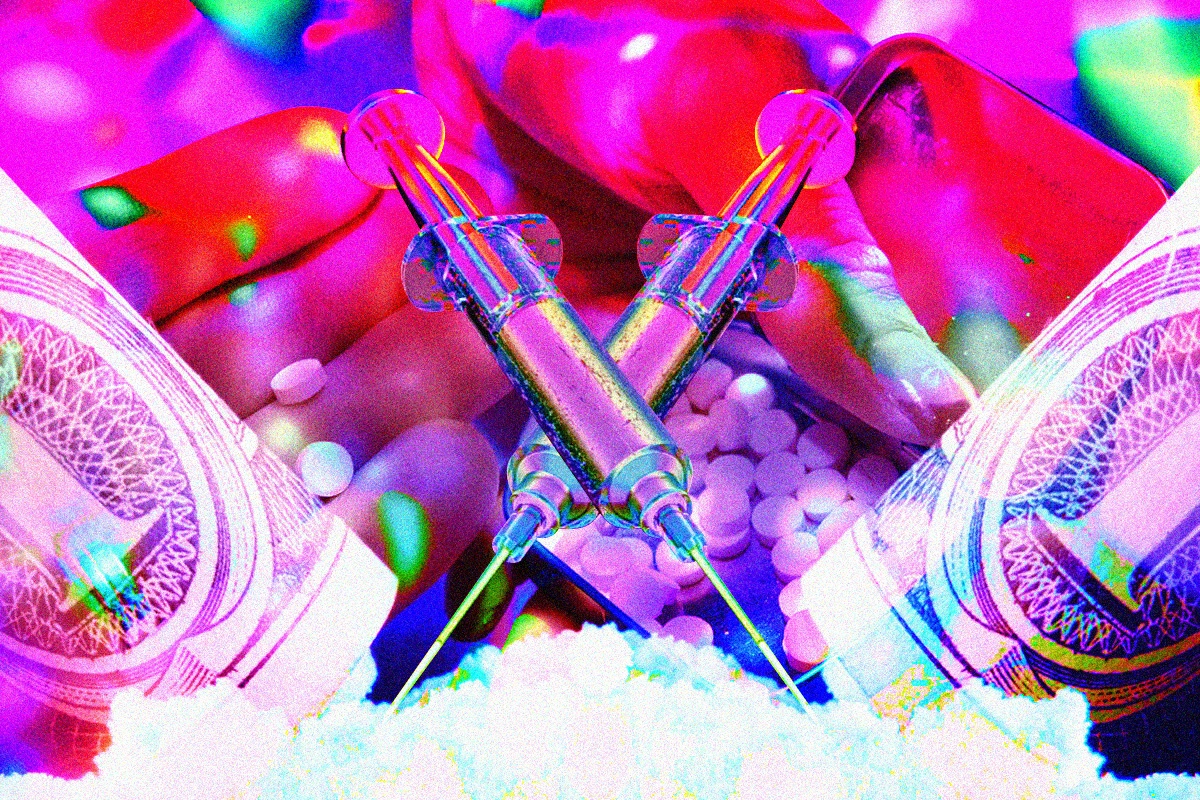Substance use treatment and therapy
15017
Substance use treatment and therapy

Written by Dr.Deyn on 28 June 2016, last reviewed and updated on 2 July 2022
Substance use treatment and therapy
Drug addiction is a chronic disease characterized by compulsive, or uncontrollable, drug seeking and use despite harmful consequences and changes in the brain, which can be long-lasting. These changes in the brain can lead to the harmful behaviors seen in people who use drugs. Drug addiction is also a relapsing disease. Relapse is the return to drug use after an attempt to stop.
The path to drug addiction begins with the voluntary act of taking drugs. But over time, a person's ability to choose not to do so becomes compromised. Seeking and taking the drug becomes compulsive. This is mostly due to the effects of long-term drug exposure on brain function. Addiction affects parts of the brain involved in reward and motivation, learning and memory, and control over behavior.
Addiction is a disease that affects both the brain and behavior.
Can drug addiction be treated?
Yes, but it’s not simple. Because addiction is a chronic disease, people can’t simply stop using drugs for a few days and be cured. Most patients need long-term or repeated care to stop using completely and recover their lives.
Addiction treatment must help the person do the following:
- stop using drugs
- stay drug-free
- be productive in the family, at work, and in society
Principles of Effective Treatment
Based on scientific research since the mid-1970s, the following key principles should form the basis of any effective treatment program:
- Addiction is a complex but treatable disease that affects brain function and behavior.
- No single treatment is right for everyone.
- People need to have quick access to treatment.
- Effective treatment addresses all of the patient’s needs, not just his or her drug use.
- Staying in treatment long enough is critical.
- Counseling and other behavioral therapies are the most commonly used forms of treatment.
- Medications are often an important part of treatment, especially when combined with behavioral therapies.
- Treatment plans must be reviewed often and modified to fit the patient’s changing needs.
- Treatment should address other possible mental disorders.
- Medically assisted detoxification is only the first stage of treatment.
- Treatment doesn't need to be voluntary to be effective.
- Drug use during treatment must be monitored continuously.
- Treatment programs should test patients for HIV/AIDS, hepatitis B and C, tuberculosis, and other infectious diseases as well as teach them about steps they can take to reduce their risk of these illnesses.
What are treatments for drug addiction?
There are many options that have been successful in treating drug addiction, including:
- behavioral counseling
- medication
- medical devices and applications used to treat withdrawal symptoms or deliver skills training
- evaluation and treatment for co-occurring mental health issues such as depression and anxiety
- long-term follow-up to prevent relapse
A range of care with a tailored treatment program and follow-up options can be crucial to success. Treatment should include both medical and mental health services as needed. Follow-up care may include community- or family-based recovery support systems.
How are medications and devices used in drug addiction treatment?
Medications and devices can be used to manage withdrawal symptoms, prevent relapse, and treat co-occurring conditions.
Withdrawal. Medications and devices can help suppress withdrawal symptoms during detoxification. Detoxification is not in itself "treatment," but only the first step in the process. Patients who do not receive any further treatment after detoxification usually resume their drug use. One study of treatment facilities found that medications were used in almost 80 percent of detoxifications (SAMHSA, 2014). In November 2017, the Food and Drug Administration (FDA) granted a new indication to an electronic stimulation device, NSS-2 Bridge, for use in helping reduce opioid withdrawal symptoms. This device is placed behind the ear and sends electrical pulses to stimulate certain brain nerves. Also, in May 2018, the FDA approved lofexidine, a non-opioid medicine designed to reduce opioid withdrawal symptoms.
Relapse prevention. Patients can use medications to help re-establish normal brain function and decrease cravings. Medications are available for treatment of opioid (heroin, prescription pain relievers), tobacco (nicotine), and alcohol addiction. Scientists are developing other medications to treat stimulant (cocaine, methamphetamine) and cannabis (marijuana) addiction. People who use more than one drug, which is very common, need treatment for all of the substances they use.
- Opioids: Methadone (Dolophine®, Methadose®), buprenorphine (Suboxone®, Subutex®, Probuphine® , Sublocade™), and naltrexone (Vivitrol®) are used to treat opioid addiction. Acting on the same targets in the brain as heroin and morphine, methadone and buprenorphine suppress withdrawal symptoms and relieve cravings. Naltrexone blocks the effects of opioids at their receptor sites in the brain and should be used only in patients who have already been detoxified. All medications help patients reduce drug seeking and related criminal behavior and help them become more open to behavioral treatments. A NIDA study found that once treatment is initiated, both a buprenorphine/naloxone combination and an extended release naltrexone formulation are similarly effective in treating opioid addiction. Because full detoxification is necessary for treatment with naloxone, initiating treatment among active users was difficult, but once detoxification was complete, both medications had similar effectiveness.
- Tobacco: Nicotine replacement therapies have several forms, including the patch, spray, gum, and lozenges. These products are available over the counter. The U.S. Food and Drug Administration (FDA) has approved two prescription medications for nicotine addiction: bupropion (Zyban®) and varenicline (Chantix®). They work differently in the brain, but both help prevent relapse in people trying to quit. The medications are more effective when combined with behavioral treatments, such as group and individual therapy as well as telephone quitlines.
- Alcohol: Three medications have been FDA-approved for treating alcohol addiction and a fourth, topiramate, has shown promise in clinical trials (large-scale studies with people). The three approved medications are as follows:
- Naltrexone blocks opioid receptors that are involved in the rewarding effects of drinking and in the craving for alcohol. It reduces relapse to heavy drinking and is highly effective in some patients. Genetic differences may affect how well the drug works in certain patients.
- Acamprosate (Campral®) may reduce symptoms of long-lasting withdrawal, such as insomnia, anxiety, restlessness, and dysphoria (generally feeling unwell or unhappy). It may be more effective in patients with severe addiction.
- Disulfiram (Antabuse®) interferes with the breakdown of alcohol. Acetaldehyde builds up in the body, leading to unpleasant reactions that include flushing (warmth and redness in the face), nausea, and irregular heartbeat if the patient drinks alcohol. Compliance (taking the drug as prescribed) can be a problem, but it may help patients who are highly motivated to quit drinking.
Add us on Line and stay in touch.
Add us on Line and stay in touch.






